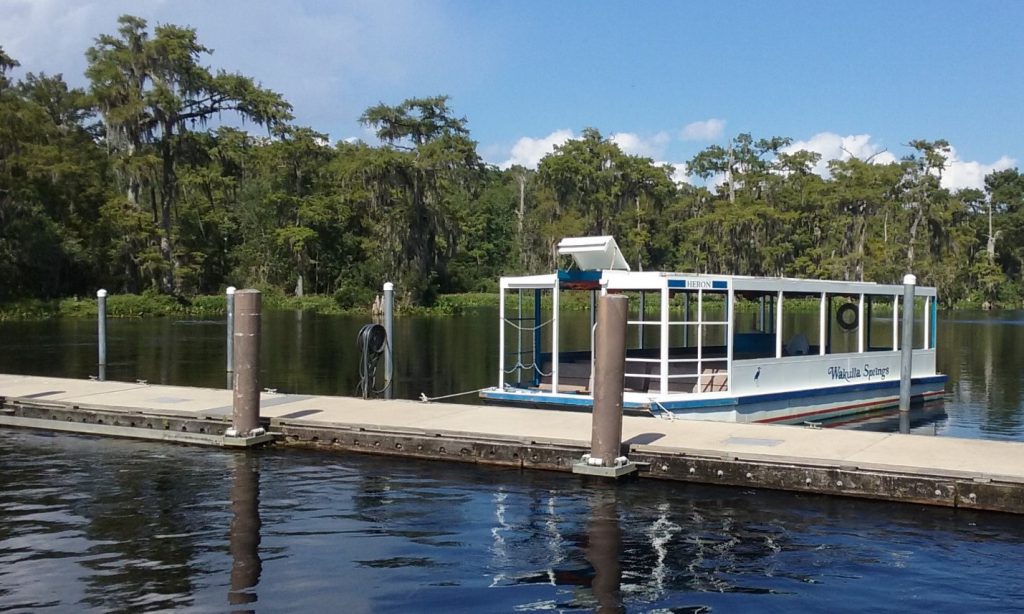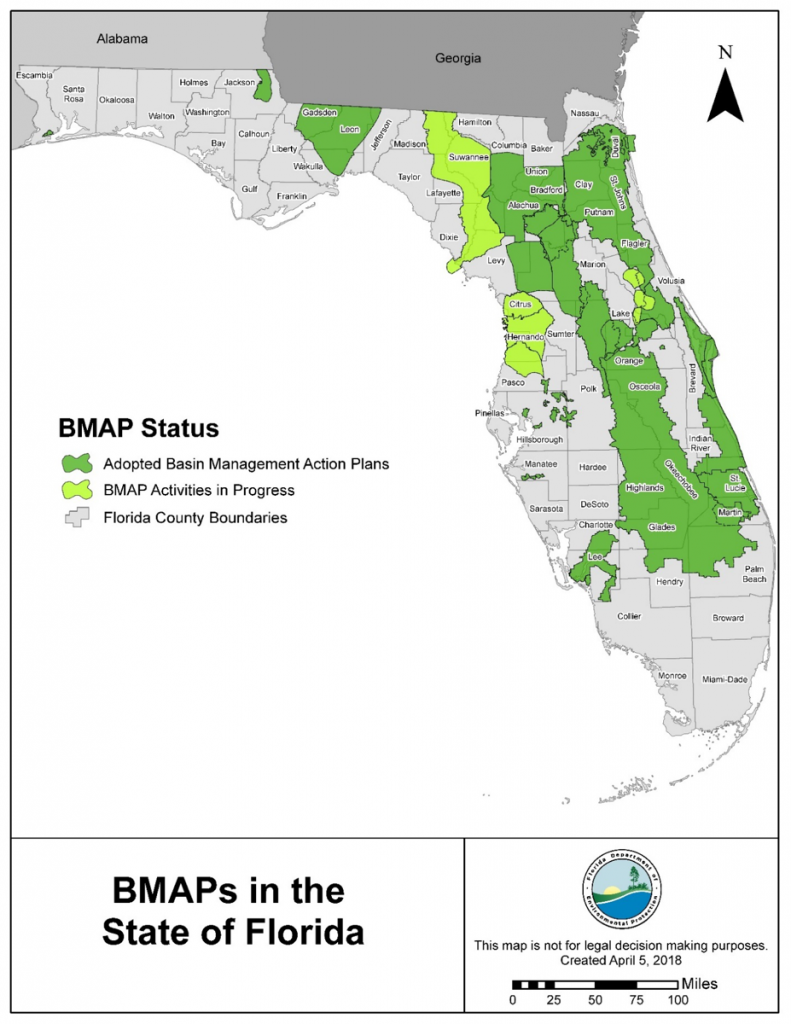
The major goal of the Wakulla Springs Basin Management Action Plan (BMAP) is to reduce nitrogen loads to Wakulla Springs. Septic systems are identified as the primary source of this nitrogen. Photo: A. Albertin
A Basin Management Action Plan, or BMAP, is a management plan developed for a waterbody (like a spring, river, lake, or estuary) that does not meet the water quality standards set by the state. One or more pollutants can impair a waterbody. In Florida, the most common pollutants are nutrients (particularly nitrate), pathogens (fecal coliform bacteria) and mercury.
The goal of the BMAP is to reduce the pollutant load to meet water quality standards set by the Florida Department of Environmental Protection (FDEP). BMAPS are roadmaps with a list of projects and management action items to reach these standards. FDEP develops them with stakeholder input. Targets are set at 20 years, and progress towards those targets is assessed every five years.
It’s important to understand that a BMAP encompasses the entire land area that contributes water to a given waterbody. For example, the land area that contributes water to Jackson Blue Springs and Merritts Mill Pond (either from surface waters or groundwater flow) is 154 square miles, while the Wakulla Springs Basin covers an area of 1,325 square miles.
BMAPs in the Panhandle
There are 33 adopted BMAPS in the state, and 5 that are pending adoption. Here in the Panhandle, we have three adopted BMAPS. They are the Bayou Chico BMAP in Escambia County, the Wakulla Springs BMAP in Wakulla, Leon, Gadsden and small parts of Jefferson County, and the Jackson Blue/Merritts Mill Pond BMAP in Jackson County. All three are impaired for different reasons.
- Bayou Chico discharges into Pensacola Bay and is polluted by fecal coliform bacteria. The BMAP addresses ways to reduce coliforms from humans and pets, which includes sewer expansion projects, stormwater runoff management, septic tank inspections, pet waste ordinances and a Clean Marina and Boatyard program.
- Wakulla Springs Nitrate from human waste is the main pollutant to Wakulla Springs, and Tallahassee’s wastewater treatment facility and the city’s Southeast Sprayfield were identified as the main sources. Both sites were upgraded (the sprayfield was moved), greatly reducing nitrate contributions to the spring basin. The BMAP is focused on septic systems and septic to sewer hookups.
- Jackson Blue/Merritts Mill Pond Nitrate is also the primary pollutant to the Jackson Blue/Merritts Mill Pond Basin, but nitrogen fertilizer from agriculture is identified as the main source. This BMAP focuses on farmers implementing Best Management Practices (BMPs), land acquisition by the Northwest Florida Water Management District , as well as septic tanks, recognizing their nitrogen contribution to Merritts Mill Pond.
Once all the BMAPS are adopted, FDEP states that almost 14 million acres will be under active basin management, an area that includes more than 6.5 million Floridians.
How are residents living in an area with a BMAP affected? It varies by BMAP and specifically land use within its boundaries. For example, in BMAPs where nitrogen from septic systems are found to be a major source of nutrient impairment to a water body, septic to sewer hookups, or septic system upgrades to more advanced treatment units will be required in specific areas. In urban areas where nitrogen fertilizer is an important source, municipalities are required to adopt fertilizer ordinances. Where nitrogen fertilizer from agricultural production is a major source of impairment, producers are required to implement Best Management Practices to reduce nitrogen loads.
More information about BMAPS
For specific information on BMAPS, FDEP has an excellent website: https://floridadep.gov/dear/water-quality-restoration/content/basin-management-action-plans-bmaps All BMAPs (full reports with specific action items listed) can be found there, along with maps, information about upcoming meetings and webinars and other pertinent information.
Your local Health Department Office is the best resource regarding septic systems and any ordinances that may apply to you depending on where you live. Your Water Management District (in the Panhandle it’s the Northwest Florida Water Management District) is also an excellent resource and staff can let you know whether or not you live or farm in an area with a BMAP and how that may affect you.
- What to Do if a Sinkhole Opens on Your Property? - June 6, 2025
- Workshop on Private Well and Septic System Basics - October 18, 2024
- Septic system maintenance after a flood - June 7, 2024

